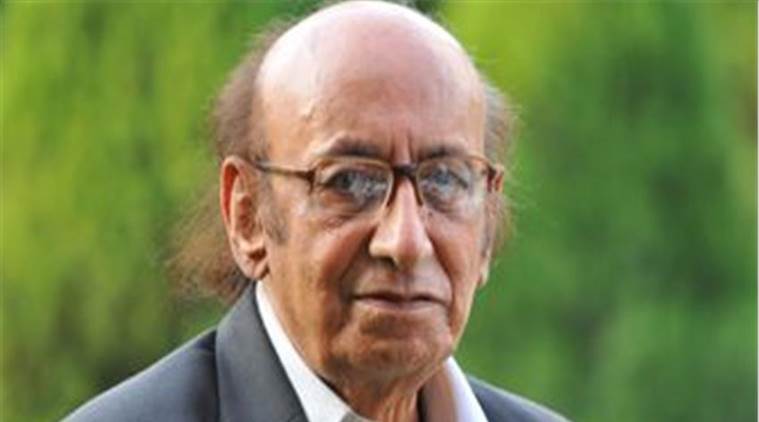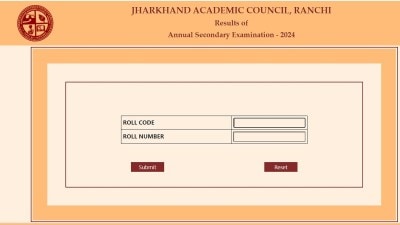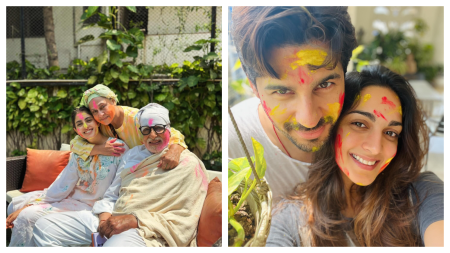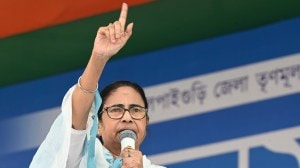- India
- International
He poured far too much of heart and reality into his poetry
Nida Fazli was a popular face at the mushairas where many a times, poetry became an urbane counterpoint to traditionalism.
 Nida Fazli wasn’t just a popular name in Urdu literature or for writing Bollywood ghazals.
Nida Fazli wasn’t just a popular name in Urdu literature or for writing Bollywood ghazals.
Kabhi kisi ko mukammal jahan nahin milta
Kahin zameen toh kahin aasmaan nahin milta
(No one ever gets the entire universe
Somewhere the earth and somewhere the sky is missing)
When playback singers Asha Bhosle and Bhupinder Singh sat down in a Mumbai studio to rehearse this piece of poetry, set to tune by composer Khayyam for the film Ahista Ahista (1981), the observation and foreboding in it moved them in a way the two hadn’t anticipated. “The poet seemed to have poured far too much heart and reality into it. It wasn’t just another ghazal. It didn’t put dreams in rhyme. This was reality of existence and its crisis in verse, without the beautiful wrapping paper,” Singh recalls.
Also read: Industry greats remember late Nida Fazli
The raag was Bihag, and the nation listened, rocking gently in its languor, one of Muqtida Hasan Nida Fazli’s most famous works. His passing on Monday, February 8, on his close friend Jagjit Singh’s birth anniversary, due to a cardiac arrest at his Mumbai residence, put his own poetry into perspective, telling us of the fickleness of life. It also became a stark reminder of the fact that with his passing, the world of ghazal and Urdu poetry has lost more lifeblood than it can afford to, and “the last of the real Urdu heavyweights”. Fazli was 78 and is survived by wife Maalti Joshi and daughter Tehreer.
Also read: Noted lyricist Nida Fazli passes away
Born in Delhi in 1938 into a Kashmiri family where poetry resonated at home daily — his father was an Urdu poet — and brought up in Gwalior, Fazli decided to stay on in India though his parents moved to Pakistan in the 1960s. Fazli’s oeuvre found influences in a variety of writers including Kabir, Meera, the pads of Surdas, poetry of Ghalib and Mir and later of Kaifi Azmi and Sardar Jaffrey, the Marxist ideology and writings of T S Eliot and Anton Chekhov.
So be it the idea of life that takes its own course in Apni marzi se kahan apne safar ke hum hai (the title song of TV serial Sailaab) or buying our loyalties forever by asking us to fall in love and figure the meaning of life with Hosh walon ko khabar kya (Sarfarosh), both in Jagjit Singh’s voice, or a coded desire in Tu iss tarah se meri zindagi mein shamil ho, the ideas were plenty, the words measured yet never adapting to survive. The writings were many and influences variegated, which became the the hallmark of the writing that came about. What, however, struck a chord with people was the simplicity of his Urdu. His wasn’t heavily Persianised Urdu but “bol-chaal ki Urdu” with a lot of Khadi boli usage, which could be easily understood by various age groups. This presence in the modern imagination helped keep the language alive and away from the death throes. In Jagjit Singh’s famous album Insight he wrote, Do aur do ka jod hamesha chaar kahan hota hai, Soch samajh walon ko thodi nadaani de maula.

Also read: Mahesh Bhatt remembers late poet and lyricist Nida Fazli
Ghazal singer Talat Aziz, who sang and composed a plethora of Fazli’s tunes, said, “Here was a man who was not diluting his first impulses. He was writing as a free thinker and wrote like that. Brilliant is a small word for him. He was the last of the brilliant poets such as Ahmad Faraz and Faiz. I am also of the firm belief that he didn’t get his due despite such great poetry. He deserved much more recognition that he actually got.”
Fazli wasn’t just a popular name in Urdu literature or for writing Bollywood ghazals. He was also a popular face at the mushairas where many a times, poetry became anurbane counterpoint to traditionalism. “He never played to the gallery. He wrote on his own conditions and never pandered to commercial interests. This is a personal loss but this man will live in the words he has given us,” said poet Wasim Barelvi, Fazli’s colleague and friend.
Also read: Best Ghazals by Nida Fazli
In one of his interviews to this reporter, Fazli was angry at the current crop of poetry being written. “We have had some meaningless shayari for quite some time now,” he said. And then, soon, as if going into a reverie, he made a slightly difficult demand from current writers: “Woh soz waapis chahiye jahan shayari aur dhun mil jaaye phir se (We need that vigour back where poetry and music can mingle again).”
Photos
Apr 19: Latest News
- 01
- 02
- 03
- 04
- 05








































